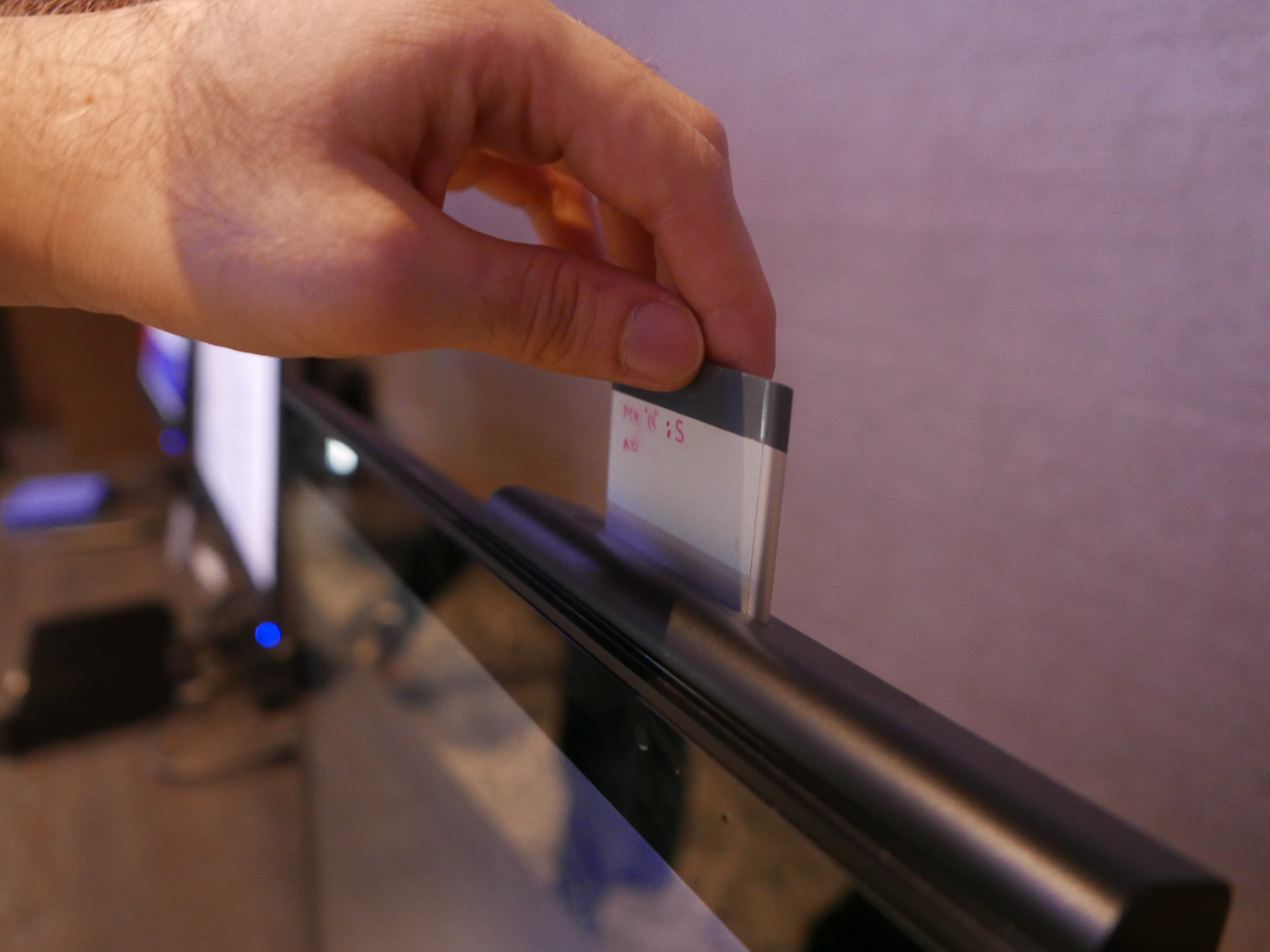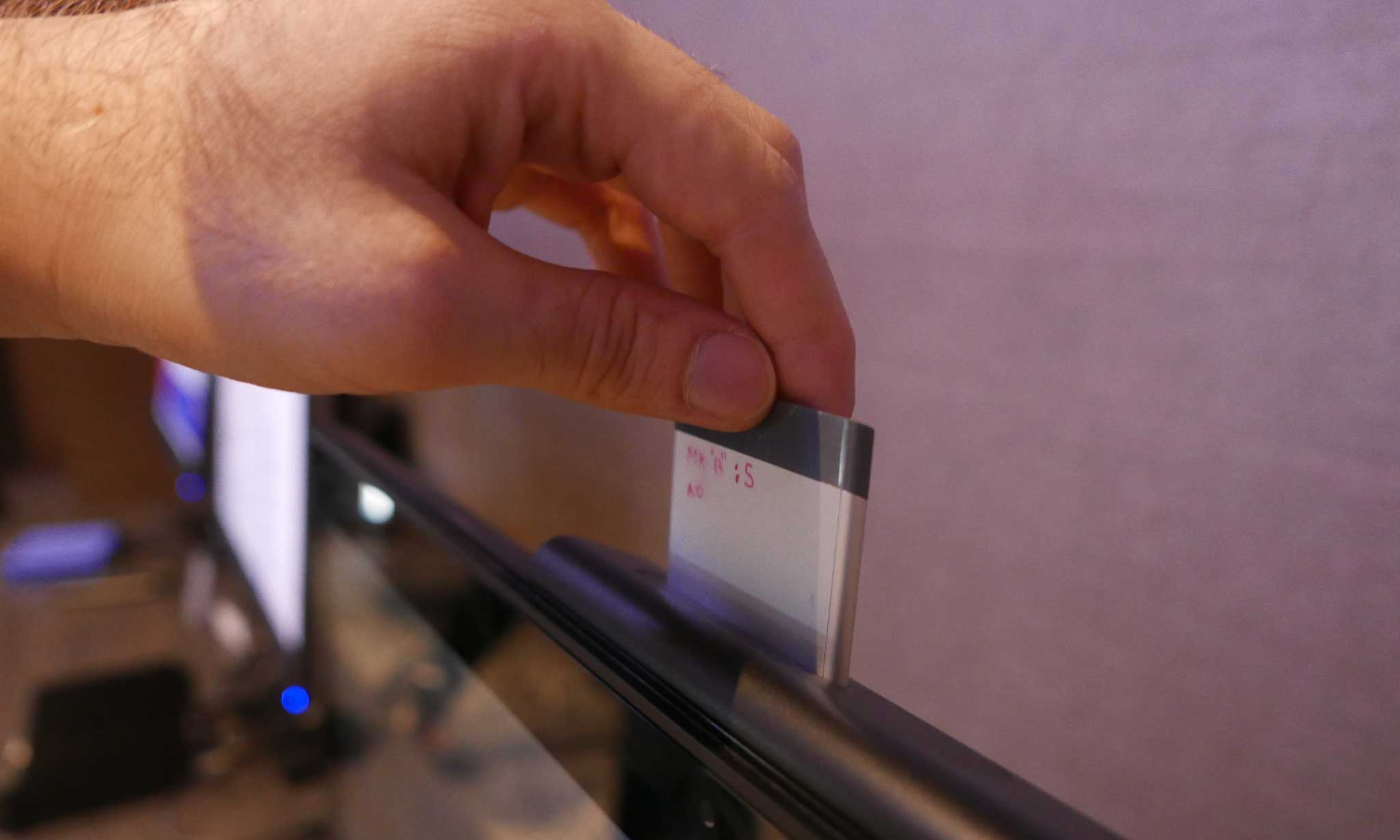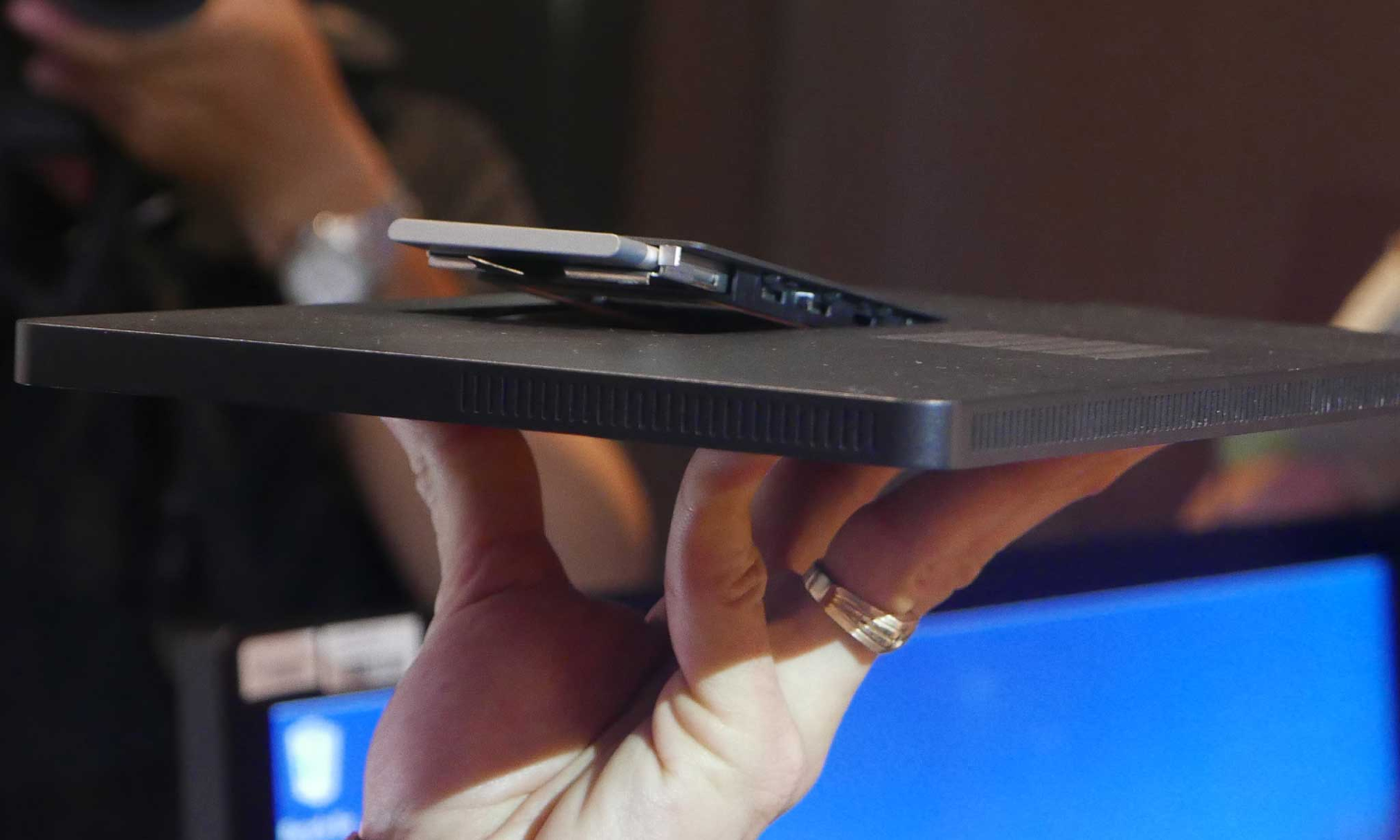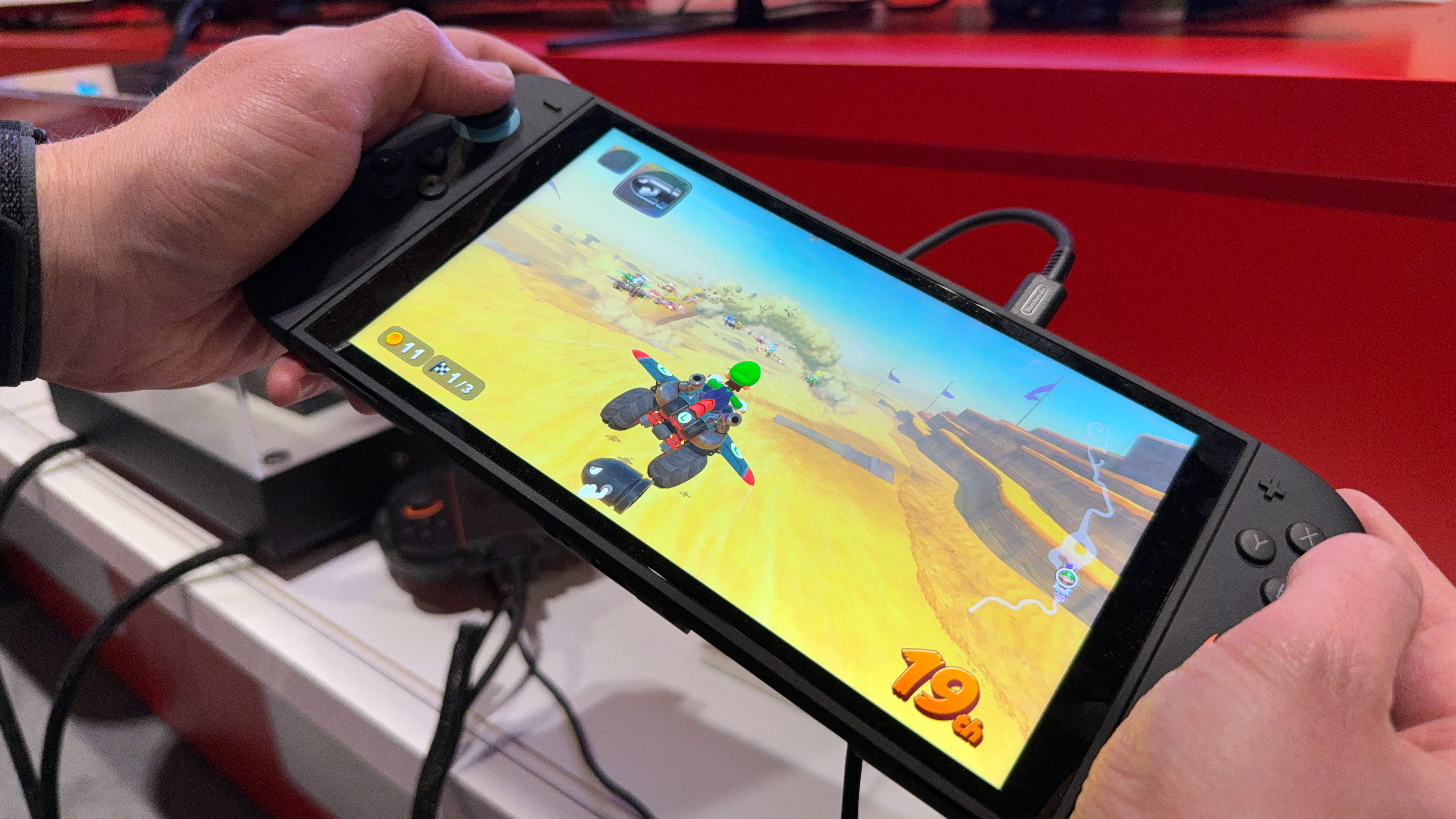Here's What Intel’s Compute Card Can Do
At Computex, Intel showed off use cases for the Intel Compute Card and the types of devices it will power.

Intel’s Compute Card, the PC so tiny it practically fits in your wallet (seriously, put it next to a credit card) is finally seeing some real applications. When the company first showed me the card at CES in January, it was just a slab of metal with some potential. At Computex in Taipei, the Compute Card has transformed into a PC that you can take with you everywhere and use with anything when it launches in August.

Intel hasn’t nailed down final prices yet, though it will likely range between $140 for the low end with an Intel Celeron CPU, 4GB of storage, 4GB of RAM and 64GB of eMMC storage up to roughly $450 for one with a Y-series Core i5 CPU with vPro, 4GB of RAM and 128GB SSD. There will be four versions in total.
For the first time, Intel showed real use cases for the Compute Card. My personal favorite was a workflow for students. One in which they would take it to school, work on a dock-enabled laptop, and then pop it into a whiteboard to show their work. To do homework, they would bring the card home and pop it into a desktop dock and work on a monitor.
MORE: Best Mini PCs - Computers That Can Fit in Your Hand
Partners with ideas on display included LG, ECS, Nexdock and Foxconn, while Dell, HP and Lenovo are also working on compatible devices. Intel wouldn’t comment on whether partner plans were final or when exactly docking products would ship. They ranged from portable monitors to a point of sale system to a desktop all-in-one.

The Compute Card also aims to keep deep devices from becoming obsolete. Instead of throwing out an entire computer, you may keep the chassis, screen and keyboard and update to a new processor, RAM and storage with a more powerful Compute Card. At CES in January, CES had suggested it could run the smart home, but they didn’t show any smart home devices among demonstrations from current partners.
Sign up to get the BEST of Tom's Guide direct to your inbox.
Get instant access to breaking news, the hottest reviews, great deals and helpful tips.
Andrew E. Freedman is an editor at Tom's Hardware focusing on laptops, desktops and gaming as well as keeping up with the latest news. He holds a M.S. in Journalism (Digital Media) from Columbia University. A lover of all things gaming and tech, his previous work has shown up in Kotaku, PCMag, Complex, Tom's Guide and Laptop Mag among others.

